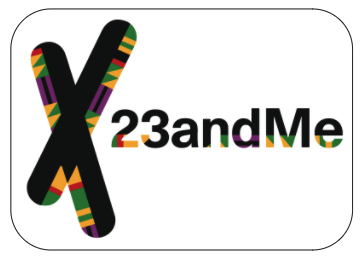Being Black in Tech
By Elo Ratliff,* MPH
To honor Black History Month, we decided not to look backward this year but instead to look inward at 23andMe, asking Black professionals here for their perspective on working in biotechnology where representation is still sorely lacking.
Being Black in tech you often find yourself being the only, or one of a very few, Black people in the room. Getting comfortable with that is important, and for the Black and African American community, history has shown us it’s that resiliency which is the antidote to remedy this lack of representation.
Community
That resiliency can help change the narrative in spaces where we do not typically see ourselves. In talking to my fellow members of the Black@23andMe Employee Resource Group (ERG), an affinity group aimed at supporting 23andMe employees who identify as Black, it takes more than just resiliency; it also takes community and support to sustain meaningful change.
For young Black professionals exploring their career paths, there are very limited outlets to expose them to job opportunities in technology, and many think that even if they do have some type of scientific or engineering background, they cannot work in tech.
Pathfinding
For 23andMe Research Associate Shaeloren Deering, who came to 23andMe after attending Spelman College and Morehouse School of Medicine in Atlanta, simply finding the path to a career in tech is harder for those in the Black community.
“I wish there were more avenues to expose future Black professionals to the various career opportunities in tech,” said Shaeloren, who supports recruitment efforts for 23andMe’s Therapeutics team.
Support
But the challenges for Black tech workers don’t stop after you finally land a job. From building a network of support, to feeling overwhelmed by constantly being the minority, to lack of representation in leadership roles, it is challenging.
There is immense pressure to always show up when you are one of the only minorities in the room, and pressure to suppress your authentic self to feel more accepted and validated in your thoughts.

There are many efforts to support underrepresented groups at 23andMe, and our ERGs are a part of that. 23andMe has also embraced Diversity, Equity, and Inclusion (DEI), which is the idea that the workplace needs to ensure that no matter what community an individual belongs to, they always feel they are being treated fairly and are not being discriminated against due to any parts of their identity. Most often, a DEI strategy helps disadvantaged groups feel a sense of belonging in the workplace.
Being Your Authentic Self
23andMe has done a lot of work with DEI, but despite these efforts, for many of us in the Black community it’s hard to shake the lifelong experience of “being different.”
That, in turn, has altered our perceptions of how to be our “authentic selves” in the workplace. Lameisha Dubose, a Senior Sarbanes-Oxley Act Compliance Analyst, said it’s important to have a community and support in the workplace where you feel comfortable to be your “true self.” She calls this:
“Standing in my truth and finding my tribe.”
Lameisha echoed the sentiments of many others who are part of Black@23andMe. Each indicated in their own way how much they rely on their own “tribe.” That might mean simply finding support through an employee resource group; it can also mean leaning on allies, or trusted friends at work with whom they feel safe, valued, and a sense of belonging.
Purpose
What helps sustain us all is our “WHY.” Why are we here? We understand that while being a minority in these spaces can be challenging, we are also paving the way for future generations of young Black professionals to come into this space and hopefully be free, or limited in the disparities we are experiencing. But we are also professionals motivated by the innovative world of technology and the possibilities it brings.
Liz Babalola, a Senior Program Manager with 23andMe’s Research team and expert in public health and quantitative research, draws her motivation from the power of technology to transform.
“I am excited about AI driven analytics and machine learning,” said Liz.
Liz’s excitement to leverage new technology to drive change, particularly to help people live healthier lives, motivates all of us.
“For healthcare, I am excited to see all the new developments that can help those who may have been helpless before,” said April Ward, a Pharmacy Office Administrator.
At our core, we all love working in biotechnology because of what is possible – whether it’s finding new insights into disease, treating those conditions, or delivering important health information people can use to lead healthier lives.
The work we do is fun, especially when we get to do these things at a company that continuously strives to build a culture where every employee feels like they are just as important as the person next to them. Luckily for us, 23andMe is that company and has worked hard over the years to ensure DEI is a top priority. We are still learning (every company is), but the openness to learn and the support from the top down to make sure we are working towards “getting it right” is the most important step to yield change, and we are doing that.
*Elo Ratliff, MPH, is a Senior Project Manager for Genomic Health at 23andMe and Co-Lead of the Black@23andMe ERG.



